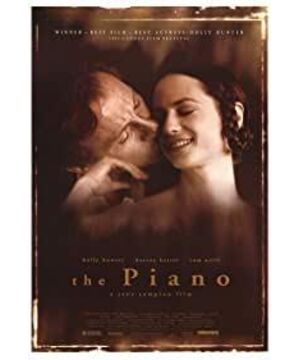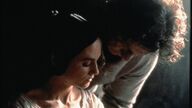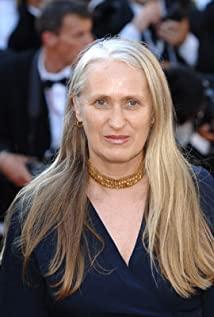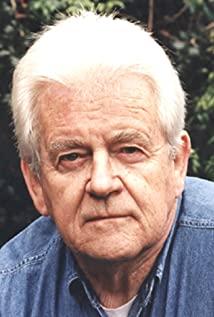What is a feminist film? This is a topic worth exploring. In a narrow sense, a feminist film is a film that interprets women's issues from a female perspective. Broadly speaking, it can be made by a female director, not necessarily a film about women's issues; it can also be made by a male director, but it can explore women's activities. , female-themed films. This definition expands its scope quite a bit. With the deepening of the influence of feminism, many directors have tried to use media symbols to write female images. There are also many domestic works with more or less feminist elements, such as "Painted Skin" and "Mulan" that everyone is familiar with in recent years, and "Lust and Caution" directed by Ang Lee. However, they cannot be regarded as pure feminist films. Although they portray some unconventional, anti-traditional, rebellious and persistent female images, they often pay the price of their lives for this at the end of the story. Hua Mulan joined the army on behalf of her father and broke away from the traditional image of a woman in feudal society, but in the end she returned safely but still returned to tradition, serving her parents, husband and son. These films are difficult to get rid of the patriarchal ideology under the deep-rooted social values. One of the masterpieces of feminist films, Jane Campion's 1993 "Piano Lesson" touched me deeply. Some people call it a perfect feminist film, and I think the reason is that it really escapes the tragic fate of women in the film and realizes women's self-liberation. For a person who does not have a rich theoretical foundation, he can also feel the strong female care in it.
"Piano Lesson" tells such a story: In the middle of the 19th century, Ada, a mute girl living in Scotland, was forced by her family to take her illegitimate daughter Flora across the ocean to marry the New Zealand landlord Stewart. Stewart greeted the mother and daughter less enthusiastically, arranging for hired labor to carry their luggage home, but he declined Ada's request to carry her piano. The piano was left behind by Stewart's unliterate estate administrator, Baines. The piano is Ada's bosom friend. Stewart's philistine and vulgarity make Ada feel out of place in life here. In order to find the piano, she agrees to Baines' request for her to come play every day. In fact, Baines has no intention of savoring music. He likes Ada. As they come into contact again and again, the relationship between the two becomes more and more intimate.
Stuart, who found out that his wife had an affair, developed a strong possessiveness. He tried to obstruct Ada over and over again, trying to force her, but all failed. He barricaded the house, trapping Ada in the house to prevent their meeting. Ada, who learned that Baines was about to leave, gave a piano key to Baines as a token of love, and Toflora gave it to Baines. But Flora gave it to Stewart.
Furious, Stewart caught Ada and chopped off one of her fingers. Ada, who lost her fingers, did not give in, but became more determined. Finally, under Ada's perseverance, Stewart chose to let them go. On the boat, Ada asked to put the piano that had accompanied her for many years into the water, and she herself fell into the water with the rope on her feet. Just when Ada sank into the sea and was about to suffocate, she broke free from the rope and chose to be reborn. Finally, they settled in a new place. Ada put on metal fingers and continued to teach people to play the piano, and began to learn to speak. She and Baines also live sweetly. Ada said that she often dreamed of the piano sleeping on the bottom of the sea, and she floated on it...
As a feminist film by a female director, "Piano Lesson" narrates the audience from the perspective of women this story. Compared with ordinary movies, "Piano Lesson" has several major features.
First of all, its rhythm seems slow, the first 2/3 of the film is in a gentle atmosphere, and the important plot changes are almost all completed in the latter 1/3. This seems to go against one of the great principles of filmmaking. Commercial movies always try to set up suspense or develop contradictions at the beginning of the story to arouse the audience's interest. And "Piano Lesson" is not in a hurry to please the audience. I almost wanted to give up the film when I was not halfway through watching it, but it didn't seem to care and was still developing at its own pace. This is obviously a success, and the long foreshadowing to the end brings people a more profound shock.
Second, it expresses emotions largely through music instead of language. Lines are an important part of the film, but the heroine Ada in "Piano Lesson" is set to be a dumb girl, which almost automatically rejects the function of language to tell the story and promote the development of the plot. The sound of the piano has become a channel for Ada to express herself. With the development of the storyline in the film, the piano music played by Ada is also constantly changing.
In addition, if the audience is sensitive and attentive, they will find that Jane Campion is very good at symbolizing the characters and scenes she sets. Each character has his role meaning, such as Ada's young daughter Flora is an extension of her voice in reality, she often expresses Ada's inner thoughts. At the same time, she is another part of Ada's split personality, the opposite of Ada's pursuit of freedom from bondage. When Flora gets her angel wings, she begins to prevent Ada from interacting with Baines, and informs Stewart of Ada's actions, leading to Stuart's violence against Ada. At this time, Flora became the devil of moral restraint. The setting of the scene is also ingenious. The whole film sets the story on a claustrophobic and desolate island, also to let everything settle down, and uses silent notes to carve the implicit and unrestrained, romantic and cruel indestructible feelings of the classical era.
Jane Campion's "Piano Lesson" tells the story of a woman from the castration of self-discourse to the awakening and resistance of female consciousness, which is full enough both technically and emotionally. The great thing about it is that it truly looks at women's living conditions from the perspective of women's existence. "Piano Lesson" is different from many feminist films that reflect the status quo of women under the discourse of patriarchy, and remind the unsubversible order of patriarchy and the destined tragedy of women's fate. Jane Campion dares to truly challenge authority and issue a real female discourse .
However, in addition to my sincere admiration, I still have a doubt that Ada's self-liberation in the film is ostensibly accomplished through the self, but there are actually two indispensable factors: Stewart's tolerance and Baines's love. If Ada hadn't met Baines, who really loved her, was willing to protect her, and took her away; if it wasn't for the brutal Stuart who changed his will at the last moment, would Ada successfully achieve independence and find herself? It may be the will, and Ada moved them with her tenacious will and her independent and determined femininity, but perhaps this explanation is not complete enough. I agree with what Engels said: "The liberation of women is the liberation of mankind." But how can women really rely on themselves to achieve liberation? I think there is still a long way to go, but the day will come.
View more about The Piano reviews










